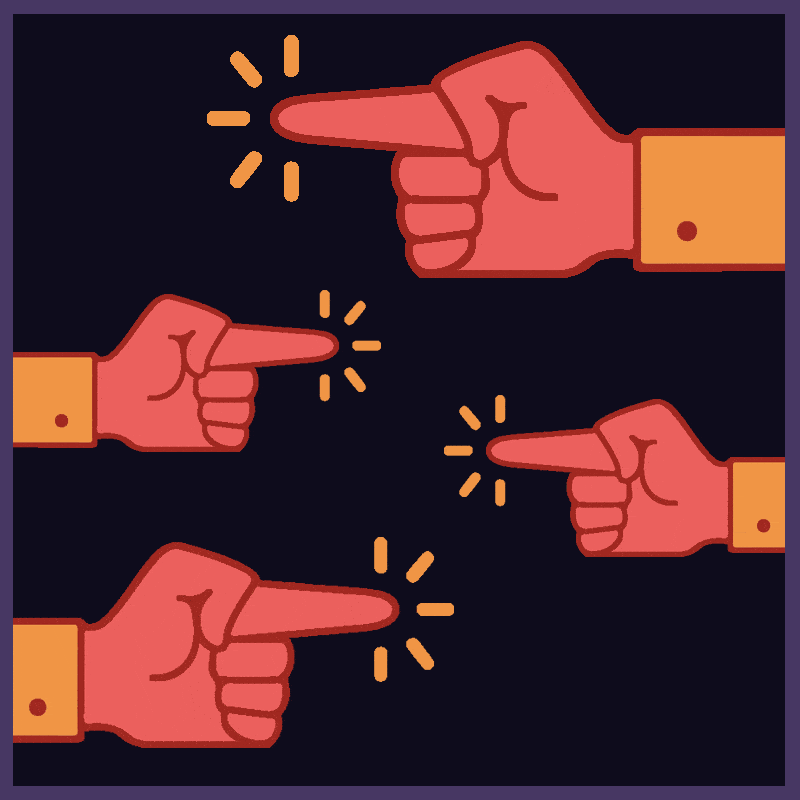How should you react when somebody comes out to you? The answer to this question is not as black and white as ‘I accept them, or I turn them away’ – and it has never been. Even allies falter in the way they react, and loved ones end up being unintentionally hurtful.
So, how do you approach such a tricky situation appropriately? How do you express concern without being intrusive and overbearing? Is there a way to be respectful, sensitive and understanding towards the person who is coming out to you?
Here’s a comprehensive guideline on how to – and how not to – react when someone comes out to you.
Don’t dismiss them with your disbelief.

It takes immense courage to come out of the closet. If they decide that they are ready to take this step and confide in you, don’t express your denial when they do. Ask yourself ‘Why do I not believe that they are queer?’
Is it because they never showed ‘signs’ of being gay? If that is the case, this is your cue to realise that queer people do not have a uniform appearance, gait or set of characteristics that define them outwardly. Can’t believe they’re queer because their dating history indicates otherwise? That brings us to our next point…
Don’t question their past.

‘But you’ve dated men before, how can you be a lesbian?!’
Every queer individual has their own unique process of realising their orientation and coming to terms with it. Respect this process and don’t dismiss them by bringing up the past. It is healthy and normal to experiment sexually and romantically with different genders, to identify with different labels to see which one fits and to express varying gender identities in an effort to figure out your own. The person coming out to you probably knows themselves better than you know them. If they say they identify with a certain orientation despite their past, respect that!
Listen.

When someone comes out to you, they are telling you something important about themselves. Listen to them, allow them to share their experiences and try not to override their narrative. Whether they want to vent and talk it out or keep things brief, the decision is theirs to make. Empathy is important, but try not to butt in with a ‘This one time in college I totally experimented too!’ or ‘Come to think of it, I wouldn’t really mind making out with a guy either’. This is their moment. Let them have it.
Don’t nag them with inappropriate questions.

Appropriate questions are welcome, and they are a great way to express your care and concern.
‘How do you feel?’ ‘Do you need a place to stay for some time?’ ‘Is there anything I can do to help?’ ‘Preferred pronouns?’ These are questions you should be asking. Don’t ask someone what’s in their pants or questions about their sexual history – it makes things uncomfortable and awkward. Ultimately, it is your responsibility to gauge the situation and the person’s level of comfort, and then decide how to navigate it.
Let them do the coming out.

Chances are that if someone tells you they are queer, they are not out of the closet to the entire world. Don’t tell others unless you are explicitly given permission to do so, and keep things confidential. Revealing someone else’s orientation without their knowledge is potentially harmful and detrimental to them, keep that in mind and acknowledge that coming out to you was an act of trust and faith on their behalf.
Unsolicited advice is a no-no.

No, it’s not a phase, no, they don’t need therapy, and no, their identity is not a product of sexual abuse or Tumblr. Remember that by extending unsolicited advice, you might be hurting the person by suggesting that there is something wrong with them – something that needs to be fixed. No ‘At least wait and see, you might turn out to be straight after a couple of years’, no ‘I personally think you should keep your identity hidden’, no ‘you should seek professional help’. If advice should be given at all, be constructive, sensitive and understanding.
Log kya kahenge? (What will people say?)
 If someone is coming out, they’ve already thought this through. Multiple times. Don’t stress them out by asking them this question in whichever form it comes to you. Life is not perfect, and India’s take on the LGBTQ+ community isn’t either. Aunties and uncles might gossip, a few co-workers might pass dirty looks in the corridors. At the end of the day, a person’s identity is more important than other peoples’ opinions.
If someone is coming out, they’ve already thought this through. Multiple times. Don’t stress them out by asking them this question in whichever form it comes to you. Life is not perfect, and India’s take on the LGBTQ+ community isn’t either. Aunties and uncles might gossip, a few co-workers might pass dirty looks in the corridors. At the end of the day, a person’s identity is more important than other peoples’ opinions.
Don’t forget that they are still the same person.

Their sexual orientation is not the only defining aspect of their personality – they are still the same brother, sister, friend or child that you knew before they came out, with the same personality that you have always known and loved.
If you don’t understand, try. You might not get a person’s sexual orientation or gender identity the instant they come out to you. Ask them for help and make an effort, because they deserve your respect and understanding. Coming to terms with your sexuality and coming out can be scary. Let them know that you are there for them and that they are not alone. Offer support in whichever way you can – your reassurance goes a long way. Moreover, don’t be offended because they didn’t tell you earlier. Coming out takes courage, and everybody takes their own time building it up.
Long gone are the days of performative allyship. Utilise resources from the internet, read up, ask questions and learn how to be the best ally and supporter you can be. When somebody comes out to you, they are telling you, ‘This is who I am, and after considerable struggle and self-doubt, I’ve decided that I’m okay with it. I want you to be too.’ This process is exciting, tumultuous, nerve-wracking, horrifying, liberating and so much more, all at once. Be the best ally you can be to the person who is coming out to you, and do your bit by following these guidelines and making the process easier for them!
Chachi Chaudhari is a lawyer turned graphic designer from Mumbai. Stalk her on the inteweb as @ChachiChaudhari.
Sukhnidh Kaur is a 19-year-old student from Mumbai. Find her on Instagram @pavemented and Twitter @skhndh
